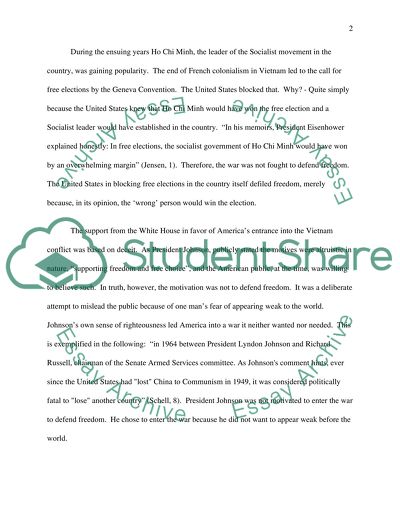Cite this document
(“The U.S. Should Not Have Fought in Vietnam Essay”, n.d.)
Retrieved de https://studentshare.org/politics/1521230-the-us-should-not-have-fought-in-vietnam
Retrieved de https://studentshare.org/politics/1521230-the-us-should-not-have-fought-in-vietnam
(The U.S. Should Not Have Fought in Vietnam Essay)
https://studentshare.org/politics/1521230-the-us-should-not-have-fought-in-vietnam.
https://studentshare.org/politics/1521230-the-us-should-not-have-fought-in-vietnam.
“The U.S. Should Not Have Fought in Vietnam Essay”, n.d. https://studentshare.org/politics/1521230-the-us-should-not-have-fought-in-vietnam.


